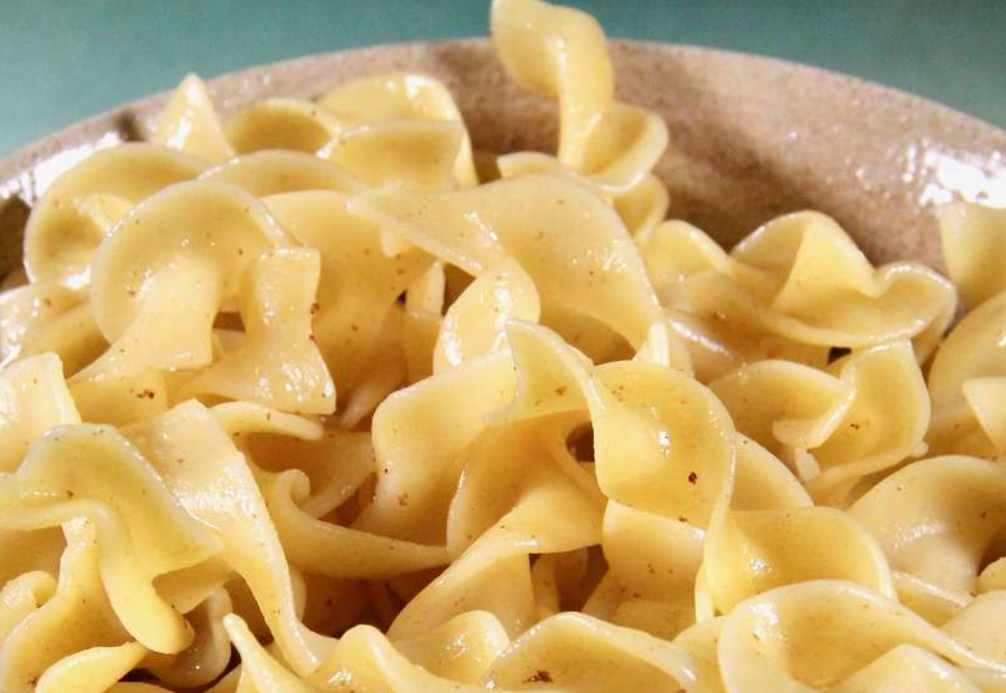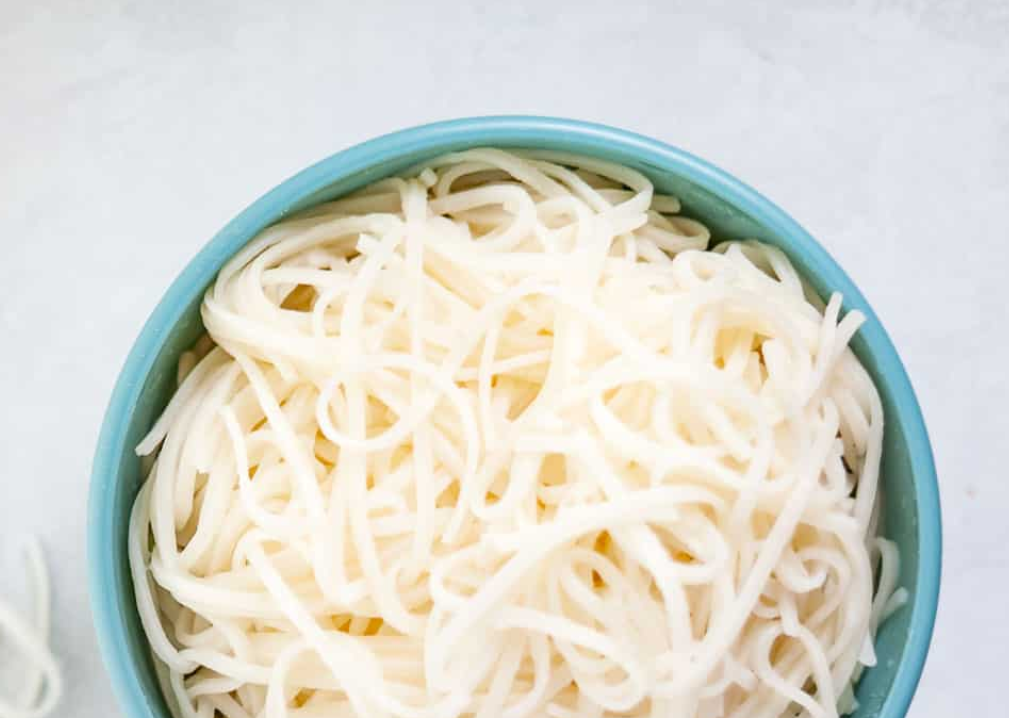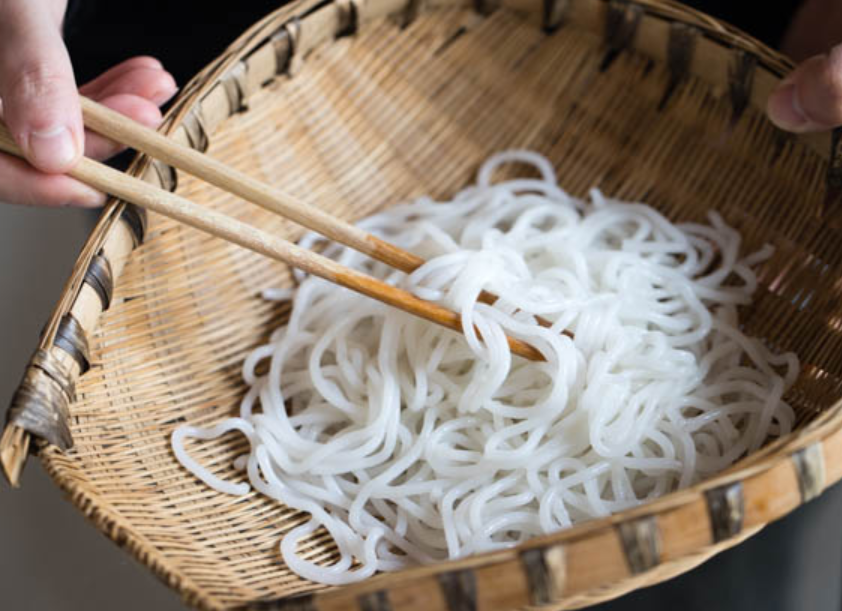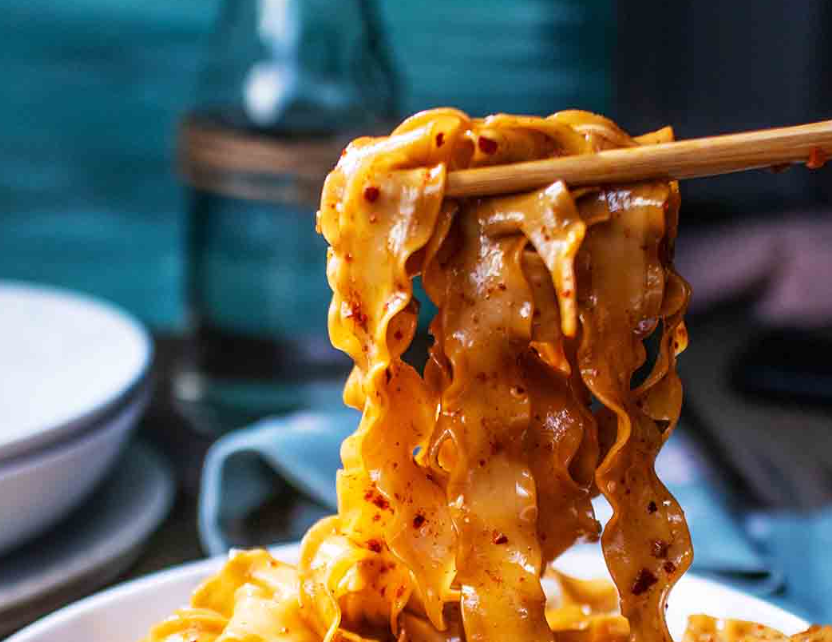Table of Contents
Are you confused about whether to opt for egg noodles or rice noodles? Then this article is just the right one for you! With numerous types of pasta available in our food store today, it can become quite overwhelming to decide which type of noodle suits your fancy. Here, we’ll help you with a comprehensive guide on all the pros and cons related to both egg noodles and rice noodles so that you choose well according to your preferences. Stay tuned if noodle shopping has been stressing you out!
What is Egg Noodle?

Egg noodles are a type of pasta that is made with durum wheat, eggs and water. These noodles have a chewy texture and are usually yellow in color due to the presence of egg yolks. Egg noodles can be found fresh or dried, although most grocery stores sell only the dried variety. They’re often boiled and served with sauces or soups, as well as stir-fried in many Asian dishes.
What is Rice Noodle?

Rice noodles are thin and flat strips of highly processed rice flour dough which has been cooked and often served in hot broth soups. Most commonly known as ‘vermicelli’ (thin strands), they come in various shapes and sizes like wide sheets, flat strips and round tubes. Rice noodles are extremely popular in Asian cuisine and can be used for a variety of stir-fries, salads or soups.
Differences Between Egg Noodle And Rice Noodle
Nutritional Value
Egg noodles have higher protein content and provide a variety of vitamins and minerals while rice noodles are low in calories and carbohydrates.
Taste/Flavor
Egg noodles have a slightly nutty flavor whereas rice noodles have a more neutral taste.
Texture
Egg noodles are chewy and tend to absorb more liquid than rice noodles which are known for their firm, al dente texture.
Price
Rice noodles tend to be cheaper in comparison to egg noodles since they’re usually processed and available in large quantities.
Benefits of Eating Egg Noodle

High in Protein, Vitamins, and Minerals
Egg noodles are a good source of protein, vitamins, and minerals. They contain B-vitamins such as folate and thiamin, which are important for energy production, cognitive function, eye health, and mood regulation. They also provide iron for red blood cell formation and magnesium for nerve functioning.
Chewier than Rice Noodles for Better Textural Experience
Egg noodles have a firmer texture than rice noodles, making them chewier and more enjoyable. This is because the dough used to make egg noodles contains more gluten than the dough used for rice noodles. This makes egg noodles great for dishes requiring a chewy texture, such as stir-fries and soups.
Easier to Flavor Due to Thickness of the Noodle
The thickness of egg noodles allows them to absorb more flavor than rice noodles, making them a great choice for dishes with robust sauces. The thicker texture also makes it easier to cook egg noodles evenly and utilize them in any recipe.
Versatile – Can be Used in a Variety of Dishes
Egg noodles can be used in a variety of dishes, including soups, stir-fries, and casseroles. They are also often served with cheese sauces or mixed vegetables for an easy meal. The versatility of egg noodles makes them a great choice for any kitchen.
Benefits of Eating Rice Noodle

Low in Calories, Fat, and Sodium
Rice noodles are a healthy, low-calorie choice for those looking to reduce their calorie intake. A single serving of rice noodles provides only around 100 calories and is virtually fat free. Additionally, rice noodles are very low in sodium, making them an ideal choice for those who need to watch their salt intake.
Easier to Digest than Egg Noodles
Rice noodles are much easier to digest than egg noodles, making them a better choice for those with digestive problems. Rice noodles contain less gluten and are therefore often tolerated better by people suffering from gluten intolerance or celiac disease.
Softer Texture Compared to Egg Noodles
Rice noodles generally have a much softer texture than egg noodles, making them perfect for dishes that require tenderness or extra flavor. Rice noodles are often used in stir fries or soups where the delicate texture of the noodle is highlighted.
Quicker to Cook – Can Be Ready in Minutes
One of the biggest advantages of using rice noodles is that they cook much faster than egg noodles. Rice noodles only need to be boiled for a few minutes before they are ready to use, making them an ideal choice when preparing meals in a hurry.
Which One Is Healthier?
Both egg noodles and rice noodles provide some health benefits depending on one’s dietary requirements. However, due to their higher nutrient content, egg noodles are generally considered the healthier choice. But it is important to remember that neither of these should be consumed in large quantities as they can still contribute to weight gain if taken in excess.
Frequently Asked Questions | Egg Noodle vs Rice Noodle
1. Is one type of noodle easier to cook with than the other?
Egg noodles tend to have a longer cooking time than rice noodles because they need more time to soften. Rice noodles often require no additional cooking time, making them an ideal choice for quick meals or snacks.
2. Do both types of noodle provide nutritional benefits?
Yes! Both egg and rice noodles can provide essential vitamins and minerals such as iron and B vitamins when cooked properly. Egg noodles are a good source of dietary fiber, while rice noodles are higher in carbohydrates and provide fewer calories per serving.
3. Can egg or rice noodles be used interchangeably in recipes?
It depends on the recipe, but typically egg noodles can usually be substituted for rice noodles and vice versa without altering the flavor significantly. However, some dishes may require specific ingredients to achieve their desired texture and flavor profile.
4. How should both types of noodle be stored?
Both types of noodle should be stored in an airtight container at room temperature away from direct light and heat, as well as moisture and humidity. This will help ensure that they stay fresh for longer periods of time.
5. Which type of noodle is better for stir-fries?
Rice noodles are generally better suited for stir-fries because they don’t break apart as easily as egg noodles and can hold up to the heat better. Egg noodles tend to be too soft, making them difficult to work with in stir-fry recipes. However, egg noodles can still be used if you prefer their taste or texture. To ensure that they don’t stick together while cooking, it is best to cook them separately before adding them to your stir-fry dish.
Conclusion
Egg noodles and rice noodles offer different benefits to suit various dietary requirements. While egg noodles are higher in protein and contain vitamins and minerals, rice noodles are gluten-free and low in calories. Ultimately, the choice between these two types of pasta boils down to personal preference depending on one’s dietary goals and taste preferences.
Read more at Ohsnap Cupcakes!